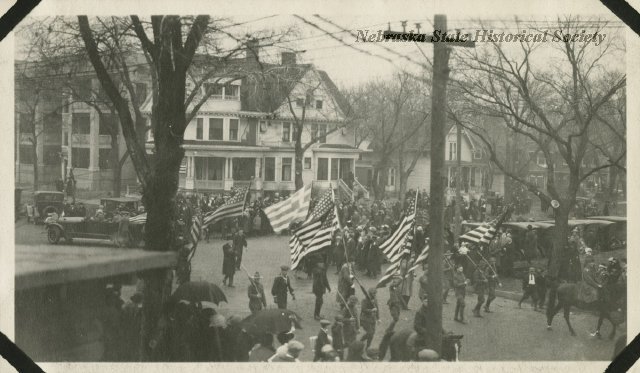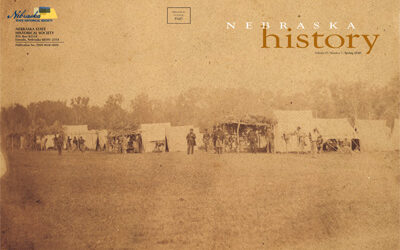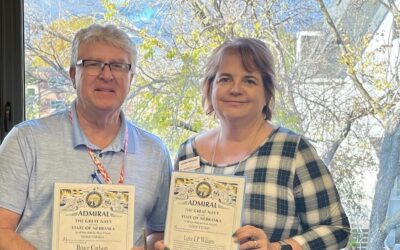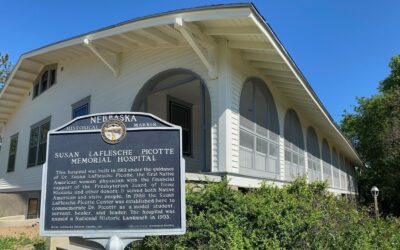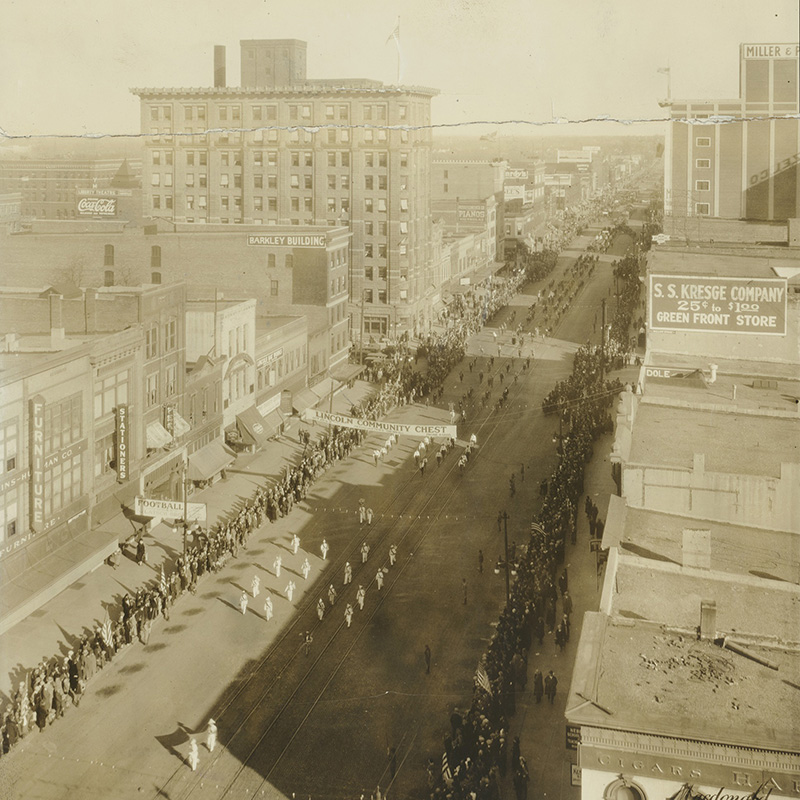
Armistice Day parade, Nov. 1925. East on O St from 11th Lincoln, Nebraska.
The armistice to end World War I signed at the eleventh hour of the eleventh day of the eleventh month was greeted with great rejoicing in Nebraska towns. The state had contributed its share to winning World War I; 751 Nebraskans lost their lives in the conflict. So anxious were Nebraskans for the war to be over, that some towns celebrated victory before the peace was signed. Reports of negotiations between the U.S. and Germany led citizens of York to “jump the gun.” An account published November 8, 1918 described the mix-up:
“There was a great celebration in York yesterday afternoon. A report that the armistice had been signed . . .was published in a Lincoln sheet and a copy of the paper was carried about town and set the joy to effervescing. The whistles blew, the horns honked, the cannon crackers cracked and there was a general hurrah.
“The Associated Press failed to confirm the report, in fact it issued a statement by Secretary Lansing that the report was a bad mistake. However, the people would not believe that it was not true and celebrated in fine style.
“This paper knew the true condition of affairs, but many people would not be convinced. Some blew good money in telephoning Omaha and other points. The premature explosion could have been avoided by seeking the correct news at the place where it is received.”
Activities on November 7th were just a warm-up for the real thing four days later. The celebration began at 2:20 a.m., the hour the armistice was signed in Europe. The siren at the light plant blew until sun up, signaling festivities that would last well into the night. “Mayor Smith came downtown and gave orders that no one be allowed to sleep any more when such good news was available. The martial bands and trumpeters were out in force going up and down the street announcing the news that the greatest war in history was at an end. There was a great parade with a motor truck leading the way. The Troubadour band came out and made the early morning most interesting with their patriotic selections.
“Mayor Smith announced that there would be a hot time in this old town tonight. The people are so glad no effort is made to curtail their celebration.”
Observance of Armistice Day continued on a yearly basis, although the festivities were tame compared to the first big blow-out. In 1954, Congress changed the name of the November 11 holiday to Veterans’ Day, in honor of all who served their country in the armed forces.
